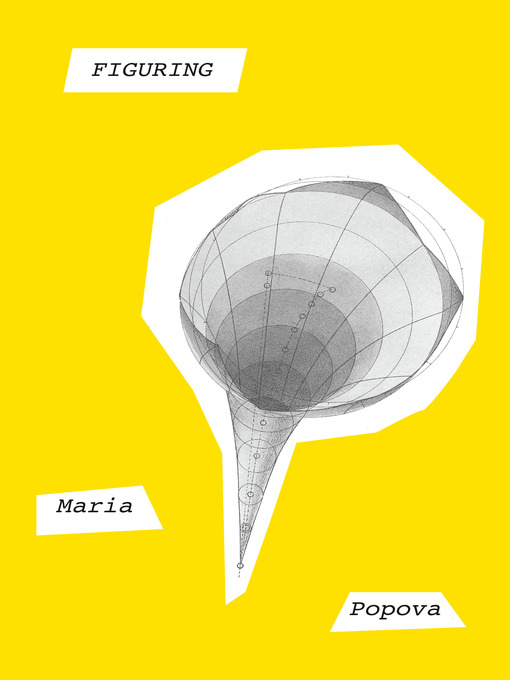
Figuring
- اطلاعات
- نقد و بررسی
- دیدگاه کاربران
نقد و بررسی

Starred review from January 1, 2019
The polymathic Popova, presiding genius behind brainpickings.org, looks at some of the forgotten heroes of science, art, and culture."There are infinitely many kinds of beautiful lives," writes the author at the outset. She closes with the realization that while we individuals may die, the beauty of our lives and work, if meaningful, will endure: "What will survive of us are shoreless seeds and stardust." In between, she peppers thoughtful, lucid consideration of acts of the imagination with stories that, if ever aired before, are too little known. Who would have remembered that of all the details of the pioneering astronomer Johannes Kepler's life, one was racing across Germany to come to the aid of his widowed mother, who had been charged with witchcraft? The incident ably frames Kepler's breaking out of a world governed by superstition, "a world in which God is mightier than nature, the Devil realer and more omnipresent than gravity," and into a radical, entirely different world governed by science. That world saw many revolutions and advances ahead of the general population, as when, in 1865, Vassar College appointed as its first professor of astronomy a woman, Maria Mitchell, who combined a brilliant command of science with a yearning for poetry. So it was with Rachel Carson, the great ecologist, whose love for a woman lasted across a life burdened with terrible illness, and Emily Dickinson, who might have been happier had her own love for a woman been realized. (As it was, Popova notes, the world was ready for Dickinson: A book of her poems published four years after her death sold 500 copies on the first day of publication.) Throughout her complex, consistently stimulating narrative, the author blends biography, cultural criticism, and journalism to forge elegant connections: Dickinson feeds in to Carson, who looks back to Mitchell, who looks forward to Popova herself, and with plenty of milestones along the way: Kepler, Goethe, Pauli, Henry James, Nathaniel Hawthorne....A lyrical work of intellectual history, one that Popova's many followers will await eagerly and that deserves to win her many more.
COPYRIGHT(2019) Kirkus Reviews, ALL RIGHTS RESERVED.

February 1, 2019
The early 19th-century transcendentalists included many extraordinary individuals, the most famous being Ralph Waldo Emerson and Henry David Thoreau. But they are merely supporting characters in this queer-, female-centric narrative from Popova (A Velocity of Being). This work features astronomer Maria Mitchell (familiar to readers of Dava Sobel's The Glass Universe); poet Emily Dickinson; marine biologist and environmental author Rachel Carson; and literary critic Margaret Fuller, who takes center stage, in stories strung together through a series of both weak and strong associations. Selections also touch on the lives of contemporaries such as educator Mary Peabody, who coined the term transcendentalism, and sculptor Harriet Hosmer. Among all the pieces, Carson's story, however, reads like an entirely different book in the same series. Similarly, the first chapter on astronomer Johannes Kepler is a bit out of place and serves only to introduce Mitchell. Moreover, Popova's attempts to imitate writers she admires with her stream-of-consciousness style is ultimately distracting and sometimes irrelevant. VERDICT Despite its flaws, this hidden gem of a work will enthrall readers seeking underrepresented voices in the history of science and literature.--Cate Schneiderman, Emerson Coll., Boston
Copyright 2019 Library Journal, LLC Used with permission.

Starred review from February 1, 2019
The ever-curious thinker behind the celebrated website Brain Pickings, Popova brings her hunger for facts and zeal for biography to this exhilarating and omnivorous inquiry into the lives of geniuses who bridged the scientific and poetic. At the start of this passionate and erudite pursuit of truth and beauty, Popova describes the strange sight of a small red leaf twirling in midair, a gravity-defying mystery solved when she discerns the fine-spun spider's web holding it aloft. This image cues the reader to the structure of this many-threaded net connecting such barrier-breakers as the brilliant astronomer Maria Mitchell; radical writers Margaret Fuller, Emily Dickinson, and Rachel Carson; and the too-little-known sculptor Harriet Hosmer, most of them women-loving women. Popova presents uniquely discerning and strikingly candid interpretations of her subjects' writings, private and published, and profiles their family, lovers, and peers, including Mary Somerville, Elizabeth Barrett Browning, Ada Lovelace, Ralph Waldo Emerson, George Sand, Frederick Douglass, Florence Nightingale, and Lise Meitner, among many others. Popova also chronicles sustaining same-sex relationships and the furors her subjects ignited, traces hidden strands of influence, and recalibrates the underappreciated impact women have had on culture and science. Writing with an ardor for language and musing on chance, affinity, and our fear of change, Popova constructs an intricate biographical cosmos that is intellectually scintillating, artistically wondrous, and deeply affecting.(Reprinted with permission of Booklist, copyright 2019, American Library Association.)




دیدگاه کاربران